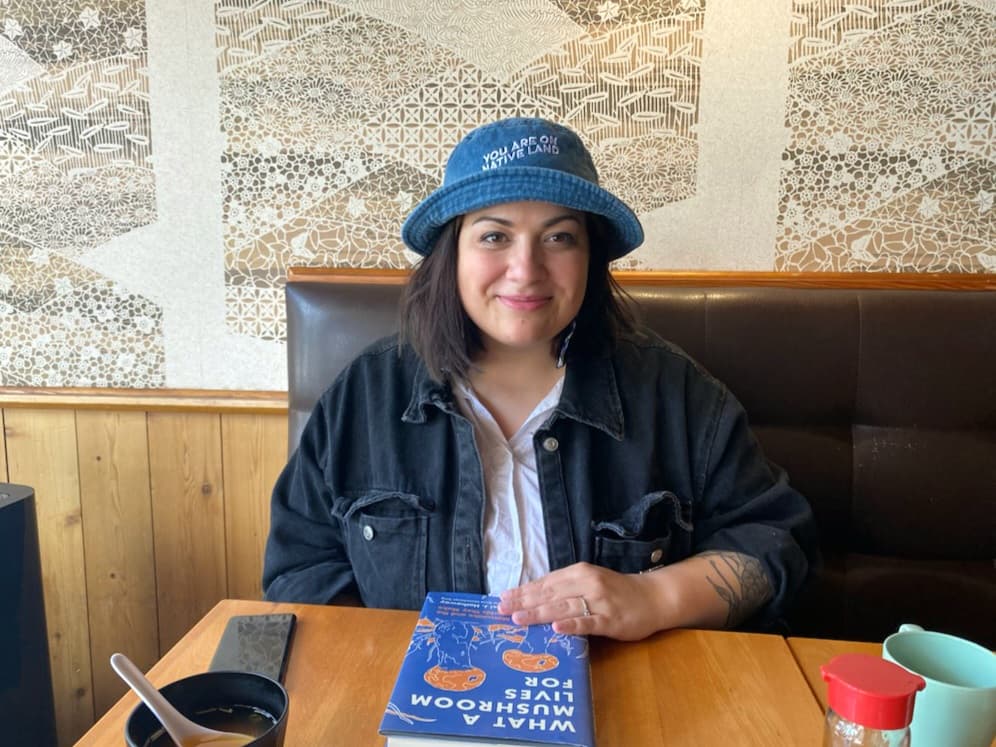Cheyanne Connell
Being a public scholar means having the unique opportunity to support and co-create knowledge that is innovative, community-driven, and publicly accessible. It means championing the experiences of those that have been historically over-looked and centring their realities in a way that speaks to the needs of community and public.
Research description
My research explores the contemporary, everyday realities of Indigenous identity-making and identity performance among community members of West Moberly First Nations. In Canada and beyond, Indigenous youth today are confronted with public narratives that suggest Indigenous identity expression is limited to traditional and rural land-based practices, such as ceremony and hunting on one's traditional territory. At times perpetuated by Indigenous community members themselves, these public expectations of what and who qualifies as authentically Indigenous greatly complicate identity-making processes and efforts of community belonging. Mainly, Indigenous youth living in urban environments or who express themselves in unique ways may be treated as ‘out of place’; their identity performance is ‘not native enough’. In an effort to address these issues, my research focuses on the movement towards language revitalization and asks: how do local and global Indigenous community members influence, inspire, and disrupt each other’s identity-making processes? Through the creation of an ethnographic short film and dissertation, I aim to develop and advance academic and public understanding of the multifaceted role traditional identity performance plays in identity-making processes among Indigenous youth today.
What does being a Public Scholar mean?
Being a public scholar means having the unique opportunity to support and co-create knowledge that is innovative, community-driven, and publicly accessible. It means championing the experiences of those that have been historically over-looked and centring their realities in a way that speaks to the needs of community and public.
In what ways do you think the PhD experience can be re-imagined with this Initiative?
The PSI invites PhD students to not only reimagine their program and research projects, but also their future possibilities as stewards of new knowledges. It asks students to critically engage with and reflect on how knowledges are created and disseminated, who the knowledge is for, and how we respect and hold the ongoing responsibilities we have to the communities we work with and those we do research for. The PSI allows us to contribute to dismantling long-held colonial barriers in academia by helping move research beyond typical PhD dissertations into more innovative knowledge products and by creating collaborative spaces for learning, teaching, and knowledge sharing.
How do you envision connecting your PhD work with broader career possibilities?
Though I will become a university professor and researcher, one of the main goals of my research project is to create equitable and accessible knowledge sharing and learning opportunities for Indigenous persons, especially youth. By creating inclusive learning spaces and greater knowledge comprehension and understanding, I see my PhD research and career as an opportunity to champion Indigenous students and public in pursuing and asserting Indigenous representation in their own careers and greater society.
How does your research engage with the larger community and social partners?
My research at its core is community-driven and collaborative. As an urban Indigenous woman and member of WMFN, I understand firsthand the complexities of growing up off-reserve. In many ways, the feeling of needing to belong through traditional practices—to reconcile a painful sense of Indigenous non-belonging—has become central to my own ongoing process of identity-making. By attending to the contemporary realities of Indigenous youth and young adults, myself included, my research speaks directly to the need to decolonize anthropological and broader academic research output that reproduce powerful narratives of who and what can and cannot be Indigenous. It confronts colonial-rooted expectations of Indigeneity and contributes to an important growing discourse of Indigenous inclusivity and diversity within academia and public spheres.
Why did you decide to pursue a graduate degree?
Thanks to the encouragement and support of Dr. Pamela Stern and Dr. Michael Hathaway at Simon Fraser University, I saw graduate school as a unique opportunity to develop my own critical thinking skills and knowledge comprehension. During my Masters Degree is where I found my love for teaching and learning. Now, successful completion of my PhD program means I will have an opportunity to become a university professor and researcher.
Why did you choose to come to British Columbia and study at UBC?
My research project lends to UBC's core values of and commitment to Indigenous reconciliation. Indigenous folks in Canada and elsewhere are looking for more expansive representation and greater inclusion in school and public, and UBC feels like a place where this work has already started and where I can help further this goal.





